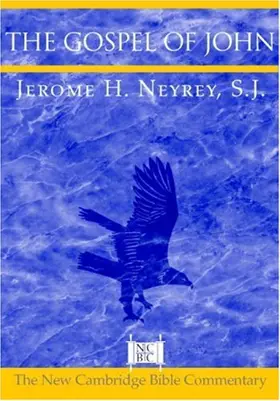

The Gospel of John
in New Cambridge Bible Commentary
Pages
374 pages
Publisher
Cambridge University Press
Published
10/30/2006
ISBN-13
9780521535212
This commentary differs from most others in that it does not attempt to repeat all the critical materials which can be found in the larger, major series. Rather it brings to the interpretation of John, materials more literary and rhetorical in nature. It presents full paragraphs on passages, key terms and major motifs. One might say that the ‘big picture’ is more important here than exacting detail. Readers will be invited into the gospel by noting its typical literary patterns (chiasms, topic statements and development, patterns of double-meaning words), rhetorical commonplaces and discourse (e.g., ‘the 'noble' shepherd’; forensic trials: accusations, defense, verdict and sentence). In particular this commentary brings readers into the cultural world of the gospel by presenting materials such as honor and shame, challenge and riposte, gossip, secrecy, and sectarian character of the group. This is a very accessible reading of John.
Collections
This book appears in the following featured collections.
- Commentaries by Roman Catholic Scholars by John Dyer
Reviews
Jerome Neyrey has authored numerous articles and essays on the Fourth Gospel, and in recent years these have been from a social-scientific perspective. This commentary brings together his writings and provides a complete overview of the Gospel utilizing social-scientific and rhetorical-critical methodologies. His commentary shows both the strengths and the weaknesses of the social-scientific methodology. Using social-scientific and rhetorical criticism, Neyrey gives a new “take” on the Gospel; this is obvious when reading the introduction, which begins by asking the question: “What does he [the author] know?” This insightful question and Neyrey’s response offers more than traditional approaches to the question of the identity of the Evangelist. Neyrey draws on the Gospel text to determine the author’s knowledge of geography, Jewish customs, scriptural and rhetorical skills, and Jewish and Greco-Roman theology. Without attempting to “name” or locate the Evangelist, Neyrey provides a rounded portrait of this elusive writer.
[Full Review]
